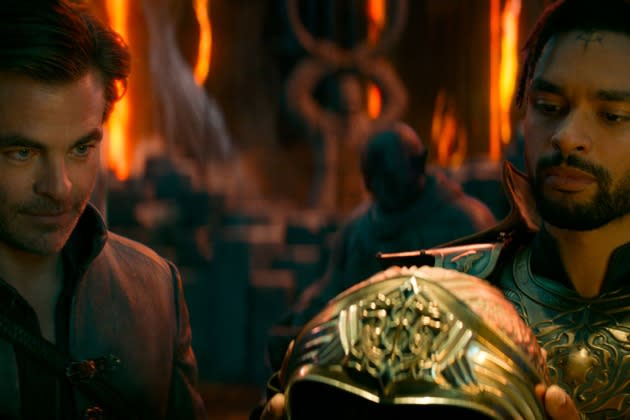Why Hasbro Put a “For Sale” Sign On Entertainment One
- Oops!Something went wrong.Please try again later.

In December 2019, Hasbro, home to G.I. Joe, Transformers and Dungeons & Dragons brands, closed a $3.8 billion deal for Entertainment One, a producer with a 6,500 title library and popular cartoons like Peppa Pig and PJ Masks.
The toymaker soon regretted the move, and this past May — when Hasbro was fending off a proxy battle from activist investor Alta Fox, which tried to get it to spin off its games division — called the timing on the studio buy “unfortunate,” indicating it overspent.
More from The Hollywood Reporter
Now Hasbro is unloading eOne, disclosing Nov. 17 it hired bankers to explore a sale of the studio but keep IP like Peppa Pig. That’s a nod to investors who have urged the company to sell part or all of eOne to reinvest in fewer, more profitable properties, and to do so with outside partners to reduce costs and risk. Wall Street analysts applauded the move.
“It makes a lot of sense to shrink the scale of eOne as there are a number of non-core assets within that business that don’t necessarily fit in the Hasbro flywheel,” MKM Partners’ Eric Handler says. The analyst adds that Hasbro will keep its family content business and like rival Mattel rely on production deals with studios and streamers and big-name talent across Hollywood. “They just need to keep enough infrastructure and personnel to shepherd Hasbro IP towards being successful movie or TV projects,” Handler notes.
The idea to become a Hollywood producer a la Marvel Studios was spearheaded by CEO Brian Goldner, who died in October 2021. His successor, Chris Cocks, is focusing more on building Hasbro as a gaming powerhouse, including its lucrative Magic: The Gathering franchise.
Rather than going through the expensive process of producing titles, Hasbro can just leverage its IP catalog for projects at Paramount, like 2023 releases Transformers: Rise of the Beasts and Dungeons & Dragons: Honor Among Thieves.
As Hasbro investor Fred DiSanto wrote bluntly in a letter to leadership in May: “Hasbro does not need to own eOne in order to bring Dungeons & Dragons to the big screen, much like George R.R. Martin did not need his own production studio to bring Game of Thrones to life.”
News of a sales process is hardly unexpected. The toy giant pointed to the earlier sale of eOne’s music business for $385 million as “not core to our brand blueprint strategy.” And the move to divest eOne also follows division CEO Darren Throop in August announcing he will exit the company when his contract expires at the end of 2022.
Now most everything else in eOne is also surplus to Hasbro’s focus on fewer, bigger brands. “This is positive because it will enable Hasbro to deleverage faster and get rid of non-core businesses where performance is hard to project and that are a distraction from running the strategic parts of the business (toys and tabletop and digital gaming)”, D.A. Davidson analyst Linda Bolton Weiser wrote in a Nov. 17 note.
Hasbro said it has retained J.P. Morgan and Centerview Partners to sell eOne just days after a Nov. 14 investors note from Bank of America claimed the toy giant was “destroying the long-term value” of its Magic: The Gathering property by selling too many collectible cards, which sparked a steep sell-off in its stock price.
As for the sale process, the company disclosed in a filing that it “anticipates that the process will take several months. In the interim, Hasbro’s entertainment team will continue to operate under the eOne production mark.”
Hasbro investor DiSanto, the chief of Ancora Holdings, also struck an optimistic note, stating that “divesting of eOne can improve the Company’s long-term positioning by enabling it to deleverage, reduce operational complexity and reinvest in core segments and high-quality brands with strong growth trajectories.”
Hasbro shares recovered by $2.45, or slightly more than 4 percent, to $58.42 at the close of trading Thursday.

